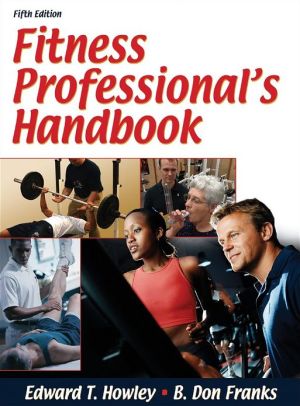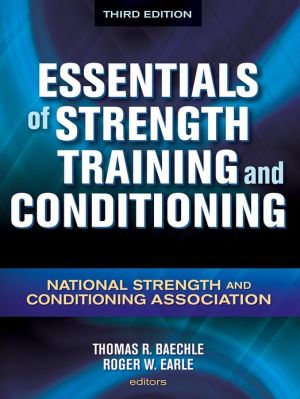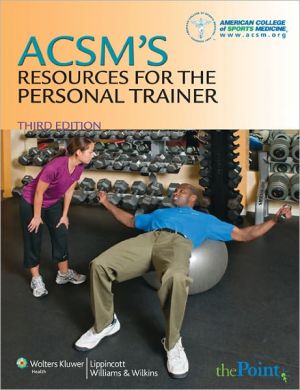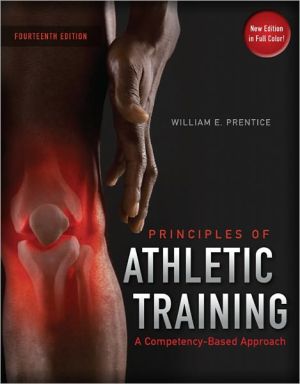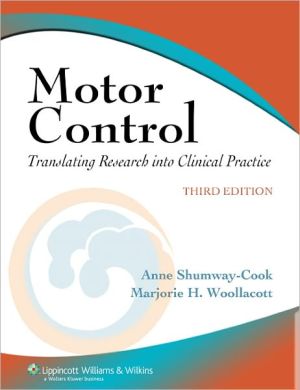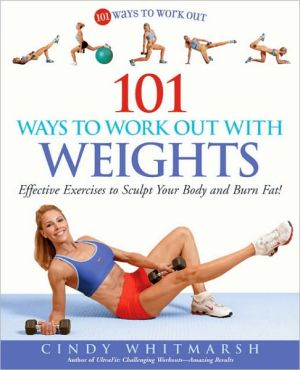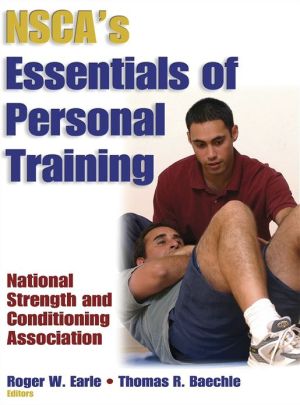Fitness Professional's Handbook - 5th Edition
Fitness Professional's Handbook, Fifth Edition, is back with a new title, an expanded scope, and thoroughly updated material. With three new chapters, numerous ancillaries, and material that reflect the current American College of Sports Medicine (ACSM) guidelines, this text will allow both students and professionals to stay abreast of the latest research and information in the field.\ Formerly titled Health Fitness Instructor's Handbook, this full-color text has undergone a title change to...
Search in google:
Fitness Professional s Handbook, Fifth Edition, is back with a new title, an expanded scope, and thoroughly updated material. With three new chapters, numerous ancillaries, and material that reflect the current American College of Sports Medicine (ACSM) guidelines, this text will allow both students and professionals to stay abreast of the latest research and information in the field. Formerly titled Health Fitness Instructor s Handbook, this full-color text has undergone a title change to better reflect its extensive use in the field. Reflective of updates made in the seventh edition of ACSM s Guidelines for Exercise Testing and Prescription, it serves as an essential text for those seeking ACSM health/fitness instructor certification and an invaluable reference for certified fitness professionals striving to stay informed amid ongoing research advances. Every chapter has been updated based on the latest standards, guidelines, and research, allowing readers to explore the newest theories, research findings, and current issues in the field. The following are among the most significant changes to the text: -A completely rewritten chapter on health appraisal that focuses on the sequence of steps to follow in screening participants -Updates based on the most recent dietary guidelines and current standards for nutritional intake -A thorough discussion of how to develop effective exercise prescriptions for strength and endurance in a very small space -A new chapter that focuses on yoga, Pilates, and other mind-body exercises -Additional insight from an expert providing real-life experiences in both fitness- and hospital-based programs and details regarding budget development Through this text, students with little or no background in fitness testing and prescription will learn to screen participants, carry out standardized fitness tests to evaluate major components of fitness, and write appropriate fitness prescriptions. They will also learn how to apply this information to special populations, including children, older adults, women, or those with chronic disease (e.g., hypertension) or a specific condition (e.g., pregnancy). To aid readers with comprehension, the text retains the best features of previous editions, such as reproducible forms, useful key points, interesting sidebars, case study questions and answers, key terms and glossary, and extensive references throughout the book. The text features an array of ancillaries, making it easy for instructors to develop and effectively teach their course. All materials are offered through a convenient product-specific Web site and include a new instructor guide, a revised test bank, and a PowerPoint presentation package that includes art, photos, and tables pulled from the text. In addition, the text s attention to detail regarding the most common fitness tests allows it to be seamlessly integrated into lab experiences associated with fitness assessment. Fitness Professional s Handbook, Fifth Edition, provides readers with comprehensive information on the fundamentals of fitness, exercise physiology, and biomechanics. Updates on assessing muscular fitness, applying guidelines for strength and muscular endurance training for diverse populations, preventing low back pain, and interpreting nutritional guidelines will allow readers to better understand the role of physical activity in the quality of life and how to follow practical guidelines for screening, testing, supervising, and modifying activity for various populations. As such, it will be a useful text for students and a valuable reference for practitioners.
PrefacePart I. Activity, Fitness, and HealthChapter 1. Physical Activity and Health The Best of Times and Worst of Times for Physical Activity Professionals Connections Between Physical Activity and Health What We Know About Physical Activity, Fitness, and Health Physical Activity and Prevention of Premature Health Problems Implications for Fitness Professionals What Is Necessary to Promote Physical Activity Case StudiesChapter 2. Physical Fitness and Performance Physical Fitness Goals Performance Goals Components of Physical Fitness and Performance Behaviors That Support Fitness and Performance Components Common Behaviors for Fitness and Health Setting Fitness Goals Taking Control of Personal Health Status Case StudyChapter 3. Health Appraisal Evaluating Health Status Making Fitness Program Case StudiesPart II. Evaluation of FitnessChapter 4. Energy Costs of Physical Activity Ways to Measure Energy Expenditure Ways to Express Energy Expenditure Equations for Estimating the Energy Cost of Activities Energy Requirements of Walking, Running, Cycle Ergometry, and Stepping Energy Requirements of Other Activities Case StudiesChapter 5. Cardiorespiratory Fitness Why Test Cardiorespiratory Fitness?Risks of CRF Testing Testing Sequence Field Tests Graded Exercise Tests Common Variables Measured During a GXT Procedures for Graded Exercise Testing When to Use Submaximal and Maximal Tests Case Studies AppendixChapter 6. Body Composition Health and Body Composition Methods for Assessing Body Composition Calculating Target Body Weight Case StudyChapter 7. Nutrition Six Classes of Essential Nutrients Assessing Dietary Intake Recommendations for Dietary Intake Diet, Exercise, and the Blood Lipid Profile Nutrition for Physically Active Individuals Female Athlete Triad Case StudyChapter 8. Assessment of Muscular Fitness Preliminary Considerations Muscular Strength Local Muscular Endurance Special Considerations: Older Adults Special Considerations: Coronary Prone Clients Considerations when evaluating strength in youth Conclusions Case StudyChapter 9. Flexibility and Low Back Function Factors Affecting ROM ROM and Low Back Function Measuring Spine and Hip-Joint ROM Case Studies AppendixPart III. Exercise Prescription for Health and FitnessChapter 10. Exercise Prescription for Cardiorespiratory Fitness Prescribing Exercise Short- and Long-Term Responses to Exercise Public Health Recommendations for Physical Activity General Guidelines for CRF Programs Formulating the Exercise Prescription Determining Intensity Exercise Recommendations for the Untested Masses Exercise Programming for the Fit Population Exercise Prescriptions Using Complete GXT Results Program Selection Environmental Concerns Exercise and Cold Exposure Effect of Air Pollution Effect of Altitude Case StudiesChapter 11. Exercise Prescription for Weight Management Increasing Prevalence of Obesity in the United States Etiology of Obesity Maintaining a Healthy Weight Behavior Modification Techniques for Weight Loss and Maintenance Gimmicks and Gadgets for Weight Loss Disordered Eating Patterns Strategies for Gaining Weight Case StudyChapter 12. Exercise Prescription for Muscular Strength and Endurance Training Principles of Training Considerations for Program Design Types of Resistance Training Modes of Resistance Training Safety Issues Resistance Training Guidelines Overreaching and Overtraining Resistance Training Systems Resistance Training for Special Populations Exercise Prescription Summary for Resistance Training Case Studies AppendixChapter 13. Exercise Prescription for Flexibility and Low Back Function Anatomy of the Spine Spinal Movement Mechanics of the Spine and Hip Joint Low Back Pain: A Repetitive Microtrauma Injury Exercise Considerations: Preventive and Therapeutic An Examination of Exercises That Involve Muscles of the Spine An Examination of Exercises That Involve the Muscles of the Abdominal Wall Prophylactic Exercises for Enhancing Low Back Function Case Studies AppendixChapter 14. Exercise Leadership for Health and Fitness Effective Leadership Progression of Activities Walk, Jog, Run Programs Games Aquatic Activities Exercising to Music Exercise Equipment Circuit Training Case StudiesPart IV. Special PopulationsChapter 15. Exercise and Children and Youth Response to Exercise Special Considerations Testing Recommendations for Physical Activity Case StudiesChapter 16. Exercise and Older Adults Overview Effects of Aging on Fitness Special Considerations Regarding Exercise Testing Exercise Prescription Epilogue Case StudyChapter 17. Exercise and Women's Health Pregnancy and Exercise Osteoporosis Female Athlete Triad Case StudyChapter 18. Exercise and Coronary Heart Disease Atherosclerosis Populations in Cardiac Rehabilitation Programs Evidence That Exercise Training Plays a Role Special Diagnostic Tests to Detect CHD Typical Exercise Prescription Case StudiesChapter 19. Exercise and Obesity Potential Causes Role of Physical Activity in Prevention and Treatment of Obesity Special Medical Screening Exercise Prescription Case StudyChapter 20. Exercise and Diabetes Overview Comparison of Type 1 and Type 2 Diabetes Importance of Exercise for Diabetic Clients Screening and Testing Diabetic Clients Exercise Prescription Case StudyChapter 21. Exercise, Asthma, and Pulmonary Disease Chronic Obstructive Pulmonary Diseases Restrictive Lung Diseases Evidence That Exercise Plays a Role Testing and Evaluation Typical Exercise Prescription in Pulmonary Diseases Medications for Pulmonary Diseases Case StudiesPart V. Exercise ProgrammingChapter 22. Behavior Modification Transtheoretical Model of Behavior Change Promoting Exercise: Targeting Precontemplators and Contemplators Enhancing Adherence: Methods of Behavior Change for Participants in the Action and Maintenance Stages Relapse Prevention Health Fitness Counseling Case StudiesChapter 23. Mindful Exercise for Fitness Professionals Introduction and Key Features of Mindful Exercise Origins Yoga Qigong Exercise and Tai Chi Contemporary Mindful Exercise Programs Mindful Exercise Outcome Indicators and Benefits Final Word Case StudyChapter 24. Exercise Related to ECG and Medications Understanding the Structure of the Heart Oxygen Use by the Heart Electrophysiology of the Heart Conduction System of the Heart Basic Information for Interpreting the ECG Cardiovascular Medications Case StudiesChapter 25. Injury Prevention and Treatment Preventing Injuries Injury Treatment Environmental Concerns Medical Concerns Common Orthopedic Problems CPR and Emergency Procedures Rescue Breathing, CPR, and Use of the Automated External Defibrillator Case StudiesChapter 26. Program Administration/Management Strategic Operating Planning Managing and Evaluating Personnel Developing a Successful Program Safety and Legal Concerns Developing a Budget Equipment and Record Keeping Quality Assessment Measures Case StudiesPart VI. Scientific FoundationsChapter 27. Functional Anatomy and Biomechanics Understanding Skeletal Anatomy Structure and Function of the Joints Factors That Determine Direction and Range of Motion Voluntary (Skeletal) Muscle Tips for Exercising Muscle Groups and Some Common Exercise Mistakes Muscle Group Involvement in Selected Activities Basic Mechanical Concepts Related to Human Movement Common Mechanical Errors During Locomotion, Throwing, and Striking Case StudiesChapter 28. Exercise Physiology Relationship of Energy and Work Understanding Muscle Structure and Function Metabolic, Cardiovascular, and Respiratory Responses to Exercise Graded Exercise Test Effects of Endurance Training and Detraining on Physiological Responses to Exercise Cardiovascular Responses to Exercise for Females and Males Cardiovascular Responses to Isometric Exercise and Weightlifting Regulating Body Temperature Case StudiesAppendix A: Case Study AnswersAppendix B: Calculation of Oxygen Uptake and Carbon Dioxide ProductionAppendix C: Energy Costs of Various Physical ActivitiesAppendix D: Medications and Their EffectsAppendix E: Evaluation of FitnessGlossary Index About the Authors About the Contributors
